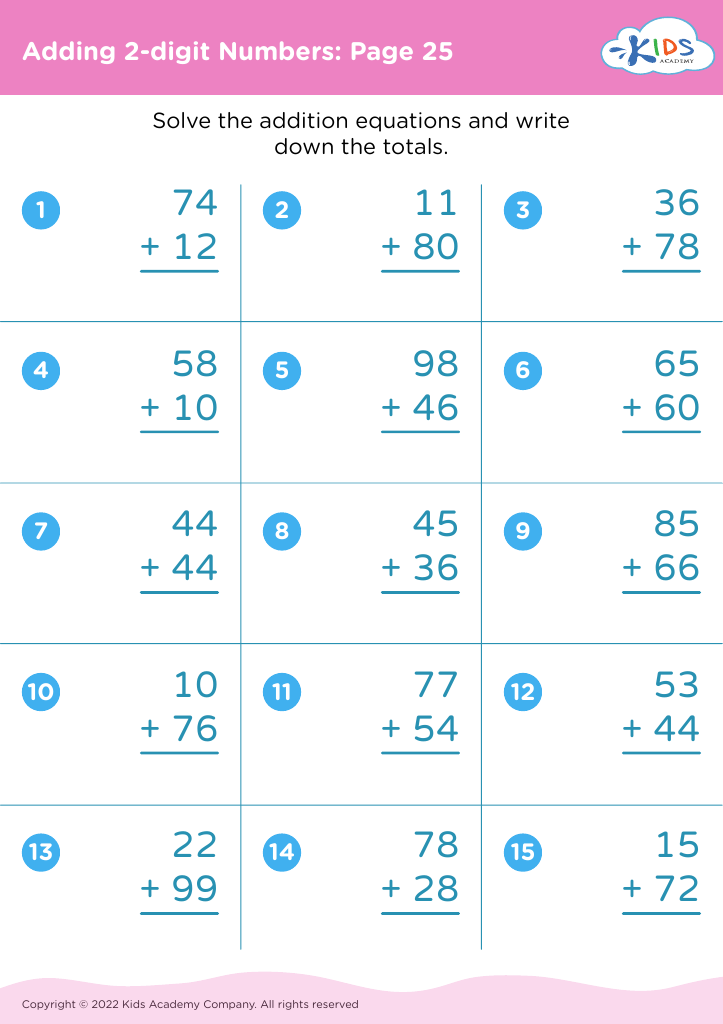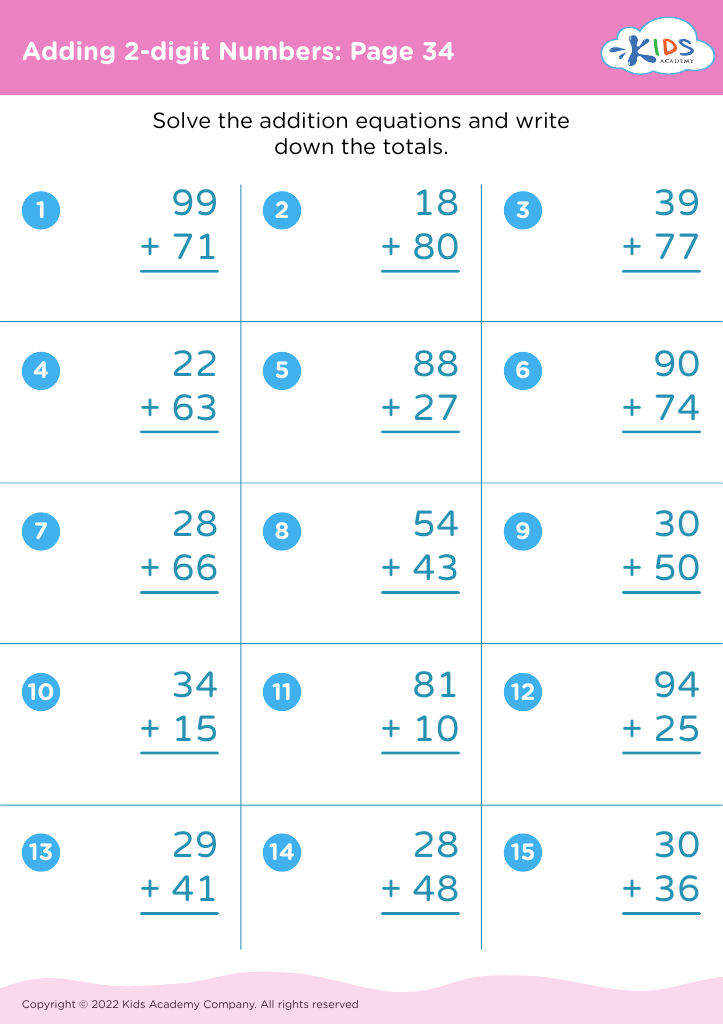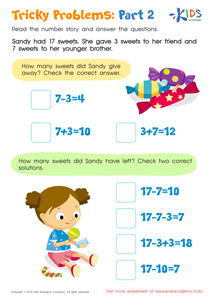Develop logical thinking Grade 2 Adding 2-digit Numbers Worksheets
3 filtered results
-
From - To
Our "Develop Logical Thinking: Grade 2 Adding 2-digit Numbers Worksheets" are designed to boost your second grader's math skills effectively. Through engaging exercises, these worksheets help children understand and master addition of two-digit numbers, enhancing their logical thinking and problem-solving capabilities. Each worksheet presents fun and challenging activities that encourage critical thinking and number sense development. Perfect for at-home practice or classroom use, these educational resources will improve your child's arithmetical fluency, ensuring they excel in their math journey. Nurture your child's love for learning with these comprehensive and thoughtfully crafted worksheets.
Parents and teachers should prioritize developing logical thinking in Grade 2, especially when learning to add 2-digit numbers, because it forms a critical foundation for a child's future mathematical understanding and problem-solving skills. At this crucial developmental stage, students are not only learning basic math operations but also developing cognitive abilities that will be essential throughout their education and daily lives.
Understanding the concept of adding two-digit numbers goes beyond rote memorization; it requires children to grasp place value, the idea of carrying over, and borrowing. These concepts strengthen logical reasoning as students must discern patterns, sequences, and relationships between numbers. For example, when adding 27 + 38, they learn to add tens (20 + 30) and ones (7 + 8) separately before combining them, enhancing their comprehension of how numerical values interact.
Moreover, competent logical thinking aids in problem-solving, allowing children to approach complex tasks systematically. This skill is crucial not only in mathematics but also in subjects like science, reading comprehension, and later in life for practical decisions. Engaging with and mastering these early mathematical concepts can build confidence and instill a positive attitude towards learning, setting children on a path of academic success and thoughtful analytical abilities. Hence, fostering logical thinking at this stage is an investment in a child's broader intellectual development.


















